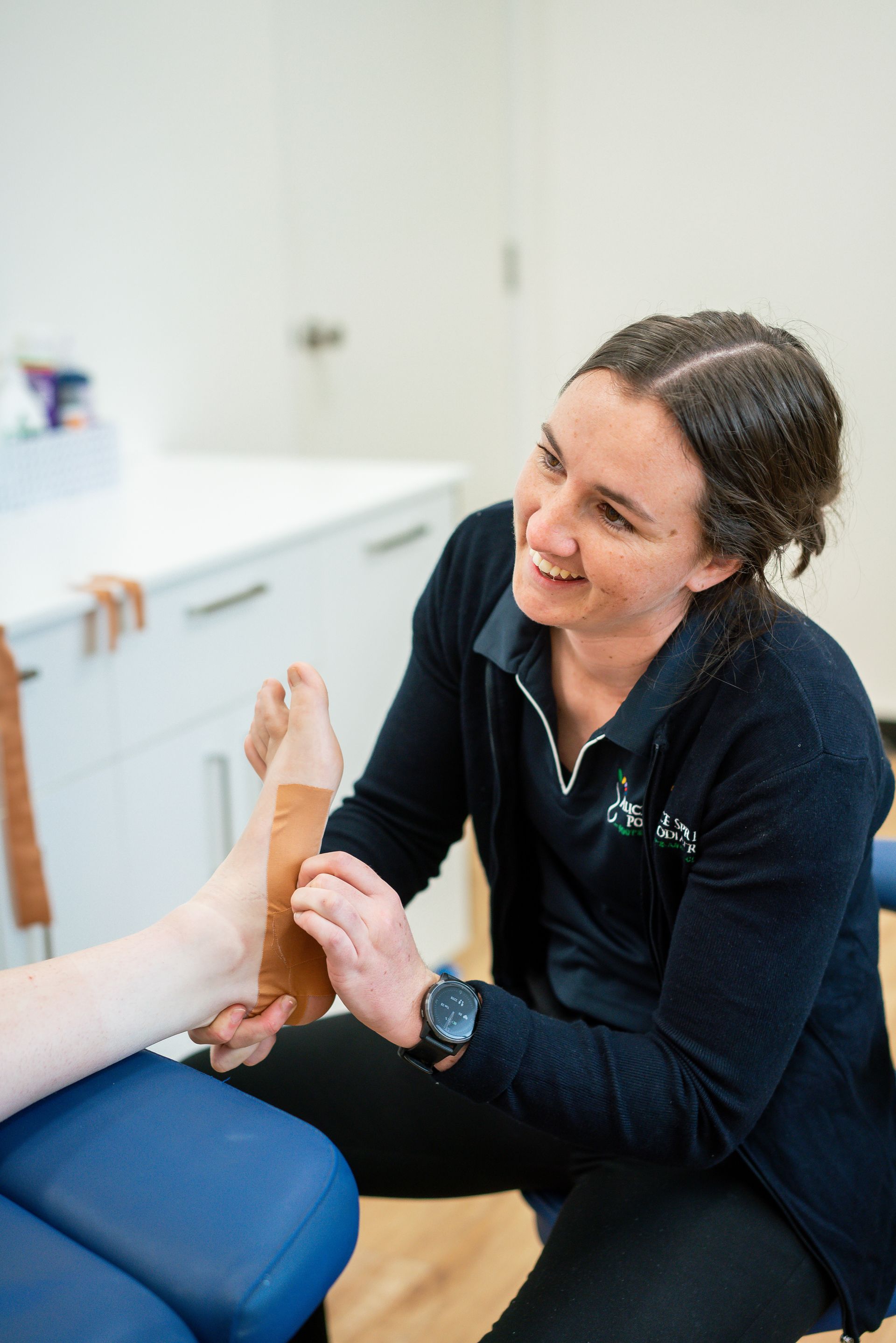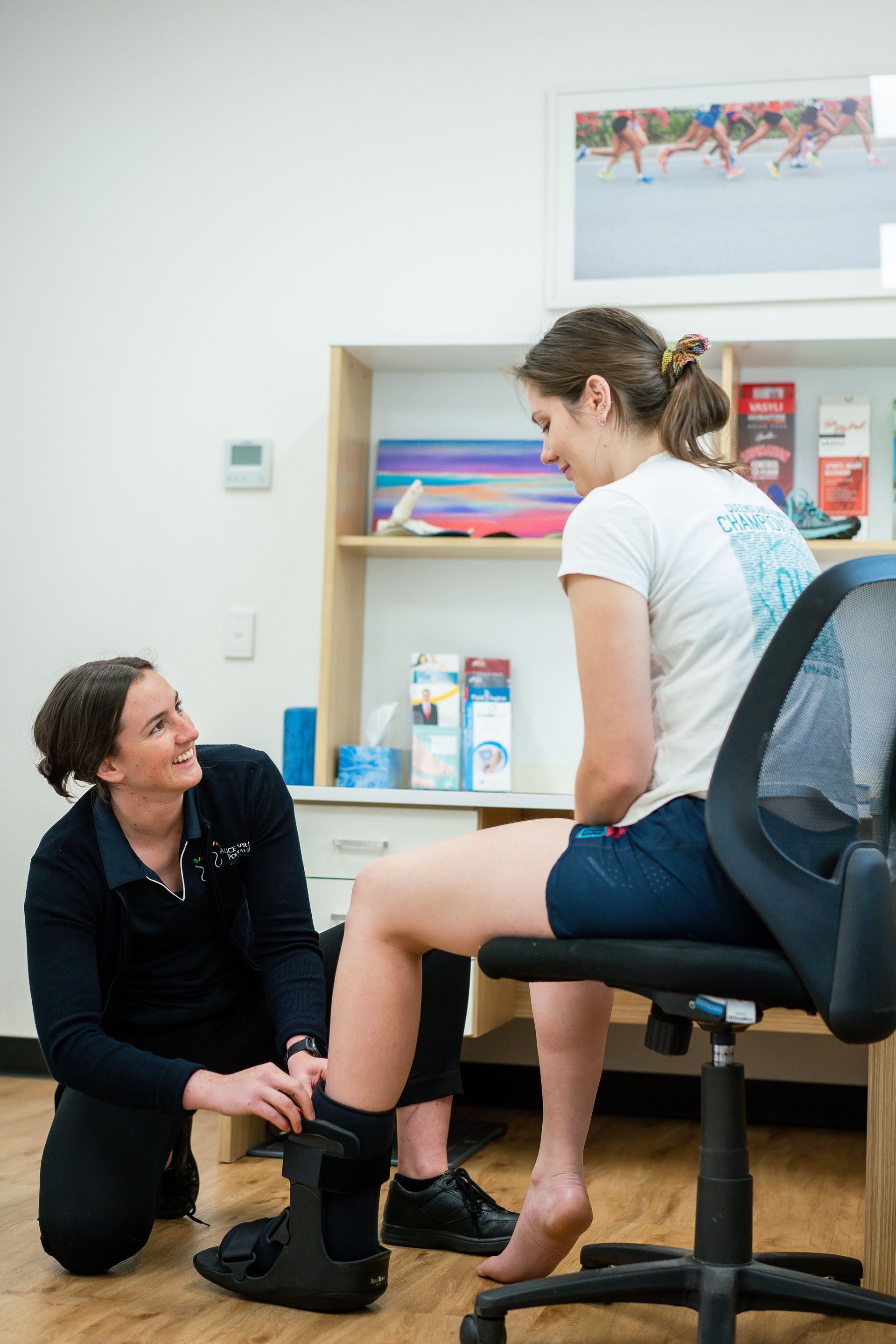Sports Injuries in Alice Springs
- Professional Team: Dedicated to patient care.
- Accessibility: Off-street parking for patient convenience.
- Health Rebates: HICAPS available for eligible claims.
Request a Call Back
Contact Us
Thank you for contacting Alice Springs Podiatry.
We will get back to you as soon as possible.
Please try again later.
Alice Springs Sports Injuries
At Alice Springs Podiatry, treating sports injuries goes beyond rest and rehab—it’s about understanding movement, preventing re-injury, and helping individuals regain confidence in their performance. Whether you're dealing with a rolled ankle on the netball court or chronic foot pain from long-distance running, each injury tells a story. Our clinic offers practical, evidence-based support to help you manage pain, restore function, and get moving again, with care designed to fit your lifestyle and goals.
- Accuracy
From video gait analysis to diagnostic ultrasound, accurate diagnosis leads to better outcomes. - Movement-Focused Recovery
We focus on the full chain of movement—feet, knees, hips—to ensure long-lasting results. - Advanced Treatment
We offer specialist treatment services from cortisone and regenerative injection therapies to electro corporeal shock wave therapy.
Even minor injuries can lead to long-term issues if left untreated. If you're dealing with swelling, persistent pain, or restricted movement, it’s best not to wait.
Call 08 8953 8822 to speak with the team at Alice Springs Podiatry and discuss your treatment options today.
How Sports Podiatry Supports Injury Recovery
Sports-related foot and leg injuries often stem from repetitive strain, incorrect technique, or footwear that doesn’t support the body’s needs. From plantar fasciitis to Achilles tendonitis, shin splints to knee misalignment—many conditions can be traced back to underlying biomechanical issues. That’s why sports podiatry doesn’t just treat pain—it investigates the root cause and puts strategies in place to help reduce the risk of recurrence.
At Alice Springs Podiatry, treatment services for sports injuries may include strengthening, stretching and mobility exercises, taping, custom orthotic therapy, dry needling, or extracorporeal shockwave therapy. These techniques support tissue healing, offload strain, and correct imbalances. Every approach is guided by your level of activity, injury history, and performance goals. By combining clinical insight with a client-first approach, the team offers more than a quick fix—it’s a partnership to support long-term recovery and improved performance.
For those in Alice Springs who rely on movement—whether for work, sport, or daily life—contact us to enquire about sports podiatry support.
What are the most common sports injuries treated by a podiatrist?
Podiatrists frequently treat injuries like plantar fasciitis, Achilles tendinopathy, shin splints, calf tears, iliotibial band syndrome, ankle sprains, and stress fractures in the foot or lower leg. These conditions often result from poor biomechanics, overtraining, or improper footwear. While some may resolve with rest and modification, others require structured rehabilitation, gait correction, and long-term orthotic support to prevent recurrence.
How does shockwave therapy help with sports injuries?
Extracorporeal Shockwave Therapy (ESWT) uses high-energy sound waves to stimulate healing in soft tissues. It is commonly used for chronic injuries like plantar fasciitis or Achilles tendinopathy that haven’t responded to other treatments. The therapy increases blood flow, reduces inflammation, and encourages tissue regeneration. It’s non-invasive and often used alongside stretching, strengthening, and orthotic therapy for a more complete recovery.
When should I see a podiatrist for a sports injury?
If you are having knee, leg, ankle or foot pain, you should see a podiatrist for a comprehensive assessment. Once the causative factors have been identified, the podiatrist will discuss the treatment options best suited to you.
Can orthotics help prevent future sports injuries?
Yes, custom orthotics can play a major role in injury prevention by correcting structural imbalances, redistributing pressure, and supporting proper alignment. When tailored to your unique foot shape and activity type, orthotics help reduce excess strain on joints and muscles. This can decrease the likelihood of injuries caused by overuse or biomechanical faults, especially in high-impact sports. Functional rehabilitation exercises in addition to orthotic therapy are also encouraged.






